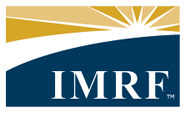Your IMRF benefits do not include insurance. For health insurance after retirement, you have a number of options depending on your circumstances.
Purchasing an Insurance Plan
One option is to purchase an individual health insurance policy.
Health Insurance Marketplace
If you are under age 65, you can find out about your insurance options under the Affordable Care Act at the Health Insurance Marketplace. There you can compare different coverage options and find out if you qualify for lower costs.
Continuing Your Employer Plan
Another option may be health insurance continuation. Federal and state legislation may require your employer to allow you to continue your health insurance.
Illinois law
If you wish to continue your health insurance under Illinois law after you become eligible for Medicare, we advise you to contact the Illinois Department of Insurance, Consumer Service Division (toll-free at 877-527-9431 or online), your health insurance provider or consultant, your attorney, or your employer for more information.
Federal law
COBRA is federal legislation covering health insurance continuation. The 1996 Health Insurance Portability and Accountability Act (HIPAA)—also federal legislation—may provide additional COBRA-related rights. Check with your employer regarding both COBRA coverage and your HIPAA rights.
Doyle Rowe LTD health plans
Doyle Rowe LTD is an insurance consultant that offers a variety of health plans, including a major medical plan for retirees under age 65, Medicare supplement plans for retirees age 65 and older, prescription drug plans, and more.
Doyle Rowe LTD's insurance specialists are available to assist you with any questions you have. You can view current available plans and rates at https://www.doylerowe.com/members/imrf, or call Doyle Rowe at 1-800-564-7227.
Automatic Premium Deduction
If you choose health care continuation
If you continued your health care coverage through your employer after retirement, you can choose to have your insurance premiums deducted directly from your monthly benefit payments.
To request automatic premium deduction, please fill out the “Health Insurance Continuation Through Employer - Premium Deduction Authorization" form and return it to your employer. You can request this form by sending IMRF a Secure Message or by calling us at 1-800-ASK-IMRF (275-4673). Your employer will complete the bottom portion of the form and submit it to IMRF.
If you choose a Doyle Rowe LTD health plan
If you enroll in a plan administered by Doyle Rowe LTD, you can choose to have your insurance premiums deducted directly from your monthly benefit payments.
To request automatic premium deduction, please complete a "Health Care Program Premium Deduction Authorization for IMRF Endorsed Plans," form (Doyle Rowe LTD will mail this form to you) and return it to Doyle Rowe LTD with your enrollment form.
Automatic premium deduction is available on all Doyle Rowe plans except for:
- Blue Cross and Blue Shield plan for retirees and family members under the age of 65
- Medicare Part D plan participants
Medicare Part D premiums cannot be deducted from your IMRF benefit payment, but you can elect to have them deducted from your Social Security payment.
Tax Deduction for Retired Public Safety Employees
Retired or disabled public safety employees are eligible to take a tax deduction of up to $3,000 on their federal income tax return for health insurance or long-term care insurance premiums.
To qualify, you must have held an eligible public safety position (in which you earned IMRF service credit) and reached full retirement age when you:
- Terminated IMRF participation for retirement, or
- Became totally and permanently disabled and are receiving IMRF disability benefits.
For additional details, including what positions meet the IRS definition of a public safety position, see IRS publication 575, Pension and Annuity Income, at www.irs.gov or talk with your tax advisor. IMRF cannot make the determination of whether you are eligible for the tax deduction.
If you’ve determined you qualify for this deduction and want IMRF to deduct your premiums from your pension payment and pay your insurer directly, you will need to complete one of the following forms:
- Election for Deductions—Insurance Premiums Paid Through Employer or Endorsed Plan Administrator (if your insurance is provided by your employer or if your insurance is a plan administered by Doyle Rowe LTD) - you can request this form by sending IMRF a Secure Message or by calling us at 1-800-ASK-IMRF (275-4673).
- Election for Deductions for Health or Long-Term Care Insurance Premiums Paid Directly to Insurer (if you purchase your insurance directly from an insurance company) - you can request this form by sending IMRF a Secure Message or by calling us at 1-800-ASK-IMRF (275-4673).


